Importance of Hiring Reliable Building Contractors
Building a home or undertaking a construction project is a significant investment. To ensure that this investment pays off, hiring reliable building contractors is essential. A good contractor can make a substantial difference in the quality of the work, the timeliness of the project, and the overall experience. Reliable contractors not only bring the necessary skills and expertise to the table but also help in navigating the complexities of construction. They ensure that the project complies with local building codes and regulations, which is crucial for safety and legal reasons.
Purpose of the Guide
This guide aims to help you understand the process of selecting the right building contractors in Pakistan. Whether you are planning to build a new home, renovate an existing property, or undertake a commercial project, knowing how to choose a reliable contractor can save you time, money, and stress.
We will cover key aspects such as what to look for in a contractor, how to evaluate their qualifications, and the importance of clear communication. Additionally, we will discuss the types of contractors available in Pakistan and the factors to consider when hiring one.
By following this guide, you will gain valuable insights into the hiring process, making it easier for you to make informed decisions. You deserve a smooth construction experience and a finished project that meets your expectations. So, let’s dive in and learn how to find the best building contractors for your needs in Pakistan.
Understanding the Role of Building Contractors
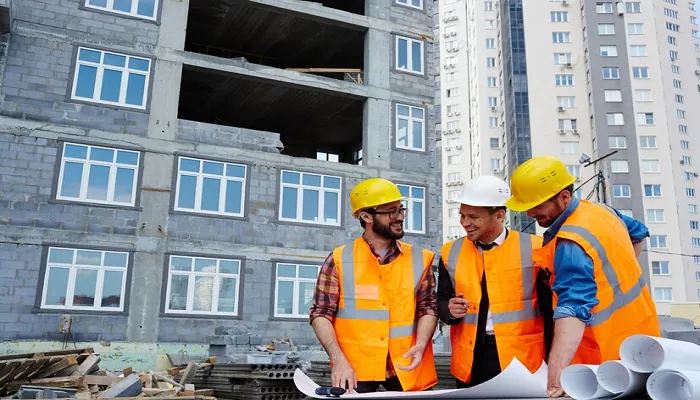
Definition of Building Contractors
Building contractors are professionals or companies responsible for managing and executing construction projects. They are the ones who take your vision for a building or renovation and turn it into reality. Contractors can work on various types of projects, from residential homes to commercial buildings, and they may specialize in different areas, such as new construction, renovations, or repairs.
Key Responsibilities of Contractors
Building contractors have several important responsibilities throughout a construction project. Understanding these responsibilities can help you appreciate the value they bring to your project. Here are some key tasks that contractors typically handle:
- Project Management: Contractors oversee the entire construction process. They create a timeline, allocate resources, and ensure that everything runs smoothly. This includes coordinating with various teams, such as subcontractors, suppliers, and inspectors.
- Budgeting and Cost Control: A crucial part of a contractor's role is managing the budget. They estimate costs, provide quotes, and track expenses to keep the project within budget. This financial oversight helps prevent unexpected costs and ensures that the project stays on track.
- Quality Assurance: Contractors are responsible for maintaining high standards of quality throughout the project. They ensure that all work meets industry regulations and standards. This includes supervising the work of subcontractors and conducting regular inspections to catch any issues early.
- Safety Compliance: Safety is a top priority in construction. Contractors must ensure that all safety protocols are followed on-site to protect workers and visitors. This involves providing safety training and using appropriate safety equipment.
- Communication: Effective communication is vital for successful projects. Contractors serve as the main point of contact for clients, keeping them informed about progress and addressing any concerns.
In summary, building contractors play a vital role in turning construction ideas into reality. Their expertise and management skills ensure that projects are completed on time, within budget, and to high standards.
Types of Contractors in Pakistan

General Contractors
General contractors are professionals responsible for overseeing entire construction projects. They manage all aspects of the construction process, from planning to completion. General contractors often take on a wide range of projects, including residential homes, commercial buildings, and infrastructure developments.
Services Offered by General Contractors
- Project Management: They coordinate all activities and ensure the project stays on schedule.
- Hiring Subcontractors: General contractors often hire specialized subcontractors for specific tasks, such as plumbing, electrical work, or carpentry.
- Budget Management: They provide cost estimates, manage budgets, and ensure that the project remains financially viable.
Specialized Contractors
Specialized contractors focus on specific areas of construction. They have expert knowledge and skills in particular fields, allowing them to perform specialized tasks effectively. Examples of specialized contractors include electricians, plumbers, and HVAC technicians.
Services Offered by Specialized Contractors
- Electrical Contractors: They handle all electrical work, including wiring, lighting installations, and ensuring compliance with electrical codes.
- Plumbing Contractors: These contractors manage plumbing systems, including installation, repairs, and maintenance of pipes, fixtures, and appliances.
- HVAC Contractors: They focus on heating, ventilation, and air conditioning systems, ensuring proper climate control and energy efficiency.
Differences in Services Offered
The primary difference between general and specialized contractors lies in the scope of services they provide. General contractors oversee the entire project and coordinate various tasks, while specialized contractors focus on specific areas of expertise.
- General Contractors: They offer a broad range of services and manage multiple subcontractors, ensuring that the overall project is completed on time and within budget.
- Specialized Contractors: They provide specific services based on their expertise, which can improve the quality and efficiency of specialized tasks within a project.
In conclusion, both general and specialized contractors play important roles in the construction industry in Pakistan. Understanding the differences between these types of contractors can help clients make informed decisions when hiring professionals for their projects.
Factors to Consider When Hiring Contractors

Experience and Qualifications
When hiring contractors, one of the most important factors to consider is their experience and qualifications. Experienced contractors have usually handled various projects, allowing them to develop the skills necessary to address challenges effectively. Look for contractors who have a solid track record in the specific type of work you need, whether it’s residential, commercial, or specialized construction.
Additionally, check their qualifications. This can include relevant degrees, certifications, and training in construction management or a specialized field. Experienced contractors will often have a portfolio of past projects, which can give you an idea of their style and capabilities.
Licensing and Certifications
In Pakistan, contractors are required to have specific licenses and certifications to operate legally. Ensure that any contractor you consider has the necessary licenses from relevant authorities. These licenses show that they meet local regulations and safety standards. Certifications from professional organizations can also indicate that the contractor has completed additional training and is committed to maintaining high standards in their work.
It is advisable to verify these licenses with the appropriate local government or construction authority to avoid any legal issues down the line.
Insurance and Bonding
Insurance and bonding are crucial for protecting yourself from potential liabilities during a construction project. A reliable contractor should have insurance that covers worker’s compensation, property damage, and liability. This protects you from financial loss if accidents occur on the job site.
Bonding is another form of protection. It ensures that the contractor will complete the project as agreed upon. If they fail to do so, the bond can compensate you for any losses incurred. Always ask for proof of insurance and bonding before hiring a contractor, as this will give you peace of mind and help safeguard your investment.
Researching Potential Contractors
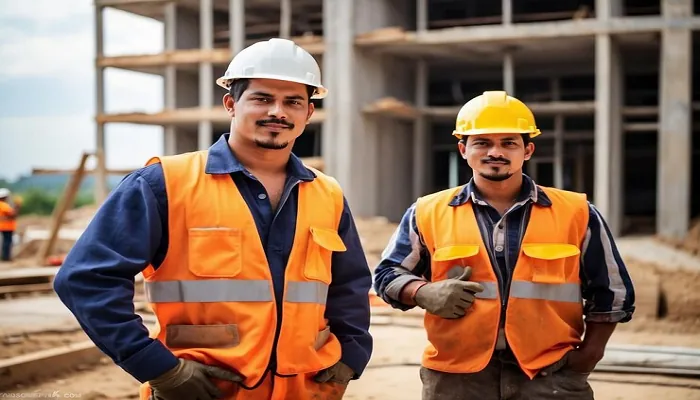
Importance of Checking References and Previous Work
When looking for a reliable contractor, it’s crucial to research their past work and check references. Ask potential contractors for a list of past clients who can share their experience working with them. Speaking with these clients will give you a better idea of the contractor's work quality, professionalism, and ability to meet deadlines. Additionally, many contractors have portfolios showcasing their completed projects. Reviewing these examples will help you assess whether their style and skills align with your needs.
Checking references ensures that the contractor you hire has a proven track record of successful projects, reducing the chances of encountering problems during your construction.
How to Use Online Resources and Local Directories
The internet is a valuable tool for finding and evaluating contractors. Websites like Google Reviews, Facebook, and specialized contractor platforms (such as Houzz or Yelp) allow you to read reviews from previous clients and see ratings for contractors. These reviews can help you identify reputable contractors and avoid those with a history of poor performance. You can also visit local directories or professional associations’ websites to find licensed and certified contractors in your area.
By using online resources, you can quickly compare contractors, check their qualifications, and make an informed decision based on other customers' feedback.
Asking for Recommendations from Friends, Family, and Real Estate Professionals
Another great way to find a trustworthy contractor is by asking for recommendations from people you know. Friends, family, and real estate professionals may have had experience working with reliable contractors and can provide honest feedback. These personal referrals often come from trusted sources, making them a reliable way to find contractors who have already proven themselves.
Getting multiple recommendations allows you to compare contractors and choose the one that best fits your needs.
Evaluating Proposals and Quotes
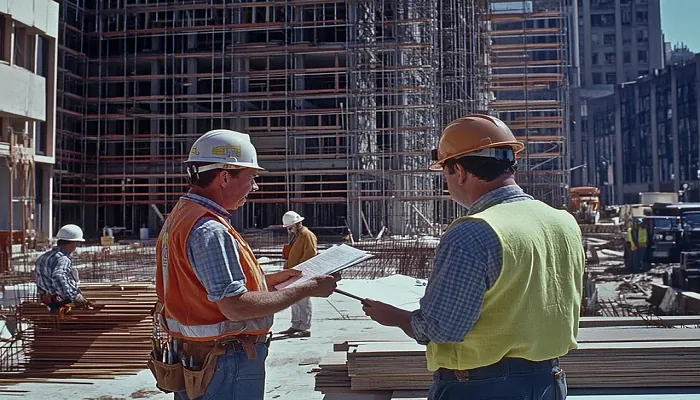
How to Request Quotes and What to Include
When hiring a building contractor, it’s important to gather multiple quotes to ensure you’re getting a fair deal. Start by providing contractors with detailed information about your project, including the type of work, materials needed, project timeline, and any specific requirements. The more precise you are with your request, the more accurate their proposals will be. Contractors usually provide a breakdown of costs in their quotes, which can include labor, materials, equipment, and other expenses.
Requesting quotes from at least three different contractors allows you to compare their services and pricing before making a decision.
Comparing Quotes Based on Value, Not Just Cost
While it may be tempting to choose the contractor offering the lowest price, it’s essential to look beyond cost alone. Instead, focus on the value each contractor offers. For example, consider their experience, the quality of materials they use, and their reputation for completing projects on time. A cheaper quote may not always include everything you need, and you could end up facing unexpected costs later on.
Assessing the overall value, including work quality, materials, and experience, helps ensure you’re choosing the right contractor for your project, not just the cheapest option.
Importance of Transparency in Pricing and Services Offered
Transparency is key when evaluating contractor quotes. Make sure the contractor provides a clear and detailed breakdown of all costs, so you understand what you are paying for. Be cautious of contractors who give vague or unclear estimates. It’s essential that all services, materials, and additional fees are clearly outlined to avoid surprises.
Choosing a contractor with transparent pricing helps build trust and ensures you’re aware of the complete cost of the project from the beginning.
Conducting Interviews and Meetings

Key Questions to Ask During the Interview Process
When interviewing potential building contractors, it’s essential to ask the right questions to evaluate their suitability for your project. Start by inquiring about their experience with similar projects, their qualifications, and any special skills they bring to the job. You can ask questions like:
- How long have you been in the construction business?
- Can you provide references or examples of past projects?
- What is your approach to managing potential challenges on a project?
These questions help you assess whether the contractor has the experience and expertise required for your specific needs.
Assessing Communication Skills and Professionalism
Clear communication between you and your contractor is crucial for a smooth construction process. During the interview, pay attention to how well they communicate. Are they listening carefully to your requirements? Do they explain their process clearly? A contractor who communicates well can help avoid misunderstandings and ensure your vision for the project is understood.
Professionalism is also important. Look for contractors who are punctual, organized, and respectful. Their professionalism during meetings is often a good indicator of how they will handle your project.
Importance of Discussing Project Timelines and Expectations
During the interview, it’s essential to discuss the project timeline. Ask how long they expect the project to take and whether they can meet your desired deadline. This will help you determine if their schedule aligns with your needs. Be sure to also clarify how they handle potential delays, such as material shortages or weather-related interruptions.
Discussing your expectations upfront, such as how often you will receive updates and the quality standards you expect, will help set a clear understanding between both parties. Clear communication on timelines and expectations ensures a smoother construction process with fewer surprises.
Checking Reviews and Feedback

Utilizing Online Reviews and Testimonials
When hiring building contractors, online reviews and testimonials can be a valuable resource. Websites like Google, social media, and construction forums provide reviews from past clients, which can help you understand the contractor's reputation. Look for contractors with consistently positive feedback, and pay attention to both the number of reviews and their quality. Testimonials on the contractor's own website can also provide insights, though it’s important to cross-check with independent sources for a well-rounded view.
Importance of Discussing Past Client Experiences
In addition to reading online reviews, try to discuss past client experiences directly. Ask the contractor for references or contact information of previous clients. Speaking with people who have worked with the contractor will give you a deeper understanding of their reliability, work quality, and communication skills. Key questions to ask previous clients include:
- Were you satisfied with the work quality?
- Did the contractor complete the project on time and within budget?
- How did they handle any problems or changes during the project?
These real-life insights can help you make a more informed decision.
How to Interpret Feedback and Make Informed Decisions
When reading reviews or talking to past clients, it’s important to interpret the feedback carefully. While no contractor may have a perfect track record, look for patterns. For example, consistent praise for timely completion or attention to detail is a good sign. On the other hand, repeated complaints about poor communication or missed deadlines are red flags.
Keep in mind that one or two negative reviews don’t necessarily mean a contractor is unreliable, but consistent negative feedback should be a warning. By balancing positive and critical feedback, you can make an informed decision when hiring a building contractor.
Finalizing the Contract
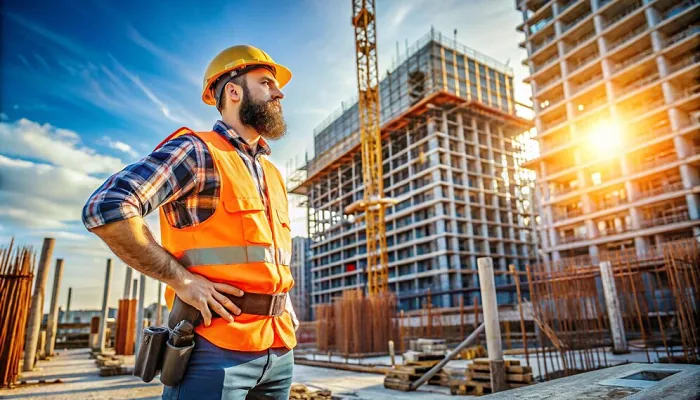
Essential Elements to Include in a Contract
When finalizing a contract with a building contractor, it’s essential to ensure that all key details are included. A well-written contract should cover the scope of work, the timeline for completion, and the payment terms. The contract should also clearly outline the materials that will be used, the quality standards, and the responsibilities of both parties. Make sure that every task, from start to finish, is clearly defined to avoid misunderstandings.
Having a detailed contract protects both you and the contractor, ensuring that everyone understands what is expected.
Importance of Clear Communication Regarding Scope, Timeline, and Payment Terms
Clear communication is crucial when agreeing on the scope of work, timeline, and payment terms. The contract should define the exact work the contractor will perform and how long it will take to complete the project. Set realistic deadlines and include a plan for what happens if there are delays.
Payment terms should also be clearly outlined in the contract. Typically, payments are broken into stages, such as an initial deposit, followed by installments as the work progresses. Agree on when and how payments will be made to avoid any confusion later.
Understanding Dispute Resolution and Termination Clauses
It’s also important to understand the contract’s dispute resolution and termination clauses. Sometimes, disagreements arise during construction. The contract should have a section that outlines how disputes will be handled, whether through negotiation, mediation, or other means.
The termination clause explains the conditions under which either party can end the contract. This is important in case of serious problems, such as non-performance by the contractor or if the homeowner no longer wishes to continue the project.
By finalizing a detailed, clear contract, you create a solid foundation for a smooth construction project.
Tips for a Successful Partnership
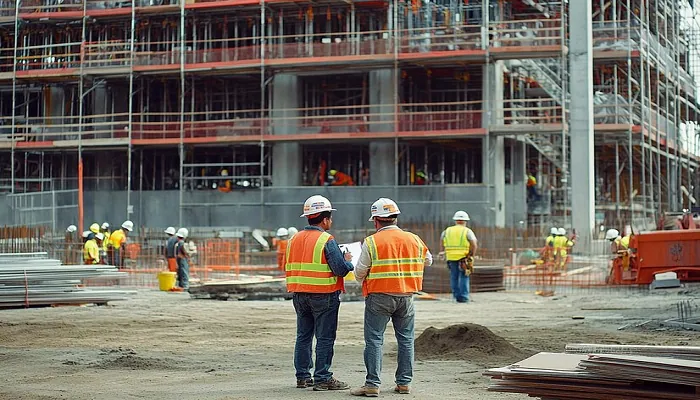
Maintaining Open Communication Throughout the Project
A strong partnership with your building contractor relies heavily on open and honest communication. From the very beginning, ensure that you and your contractor have a clear understanding of project goals, timelines, and expectations. Regular updates are essential, whether through phone calls, emails, or site meetings. Clear communication helps avoid misunderstandings and allows you to address issues early before they become bigger problems. Encouraging a two-way dialogue fosters trust and ensures that both parties stay aligned throughout the construction process.
Setting Realistic Expectations and Being Flexible
When working on a construction project, it’s important to set realistic expectations. This includes understanding that unforeseen challenges, such as delays due to weather or material shortages, might arise. Discuss potential challenges with your contractor at the start of the project, and agree on how such situations will be handled. While it’s important to stay firm on essential aspects of the project, being flexible on minor adjustments can lead to smoother progress and a better working relationship. A flexible mindset will help reduce stress and keep the project moving forward.
Importance of Regular Site Visits and Progress Check-ins
Regular site visits are critical to ensure that the project is going according to plan. Visiting the site allows you to monitor progress, assess work quality, and address any concerns immediately. During these visits, you can discuss milestones with the contractor and check that the project is staying on schedule. Progress check-ins, whether in person or through reports, help keep everyone accountable and ensure that any changes or adjustments are agreed upon promptly. This proactive approach helps ensure a successful outcome and minimizes surprises at the end of the project.
In summary, hiring reliable building contractors is crucial for the success of any construction project. Key steps include researching potential contractors, checking references, reviewing their past work, and ensuring they have the necessary licenses and insurance. Additionally, clear communication about project expectations and timelines is essential for a smooth collaboration. By taking the time to thoroughly vet and select the right contractor, you lay a strong foundation for your project’s success. Investing this time upfront can lead to quality workmanship, adherence to deadlines, and ultimately, a construction project that meets your vision and exceeds your expectations.
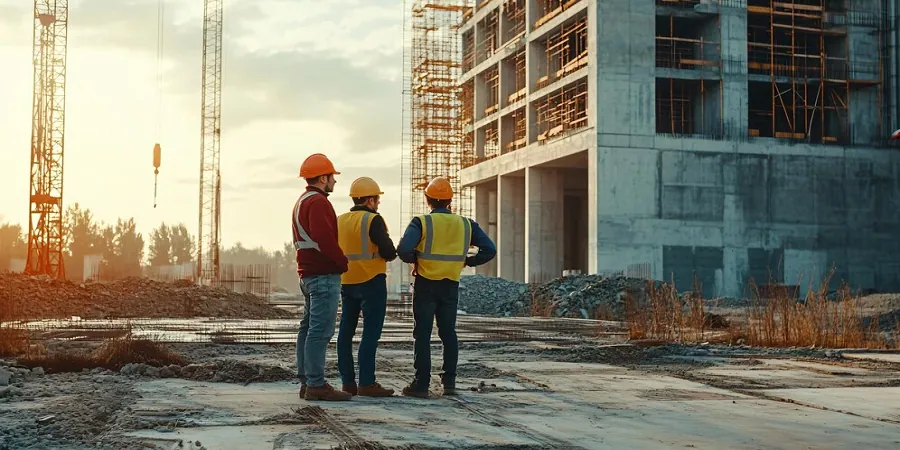
Comments